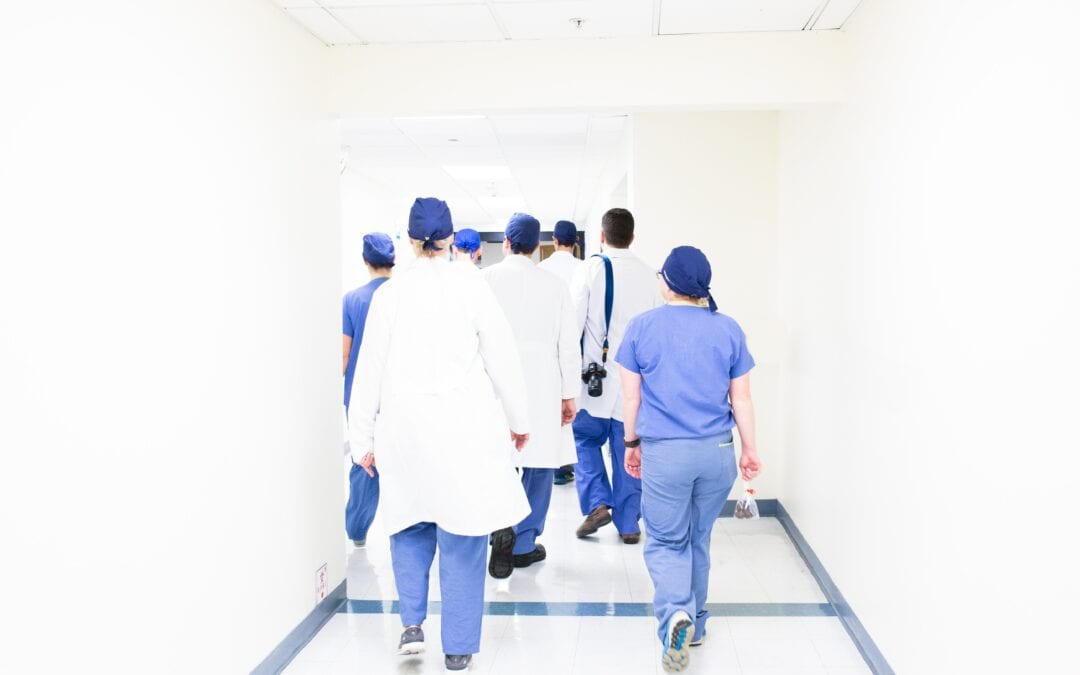Why medicine?
I literally believe that I was born with the thought of being a doctor.
As a kid, I’d ask my grandma to tell me stories about my mom when she was a little like me. She would always tell me that my mom wanted to be a doctor, a pilot and a wife with 5 kids.
Now, my mom’s life didn’t quite end up that way. She became an educator and had only me. But I think her desire to want to become a doctor passed on to me. I never had a life-changing moment where I decided to become a doctor. It’s something that I’ve always told people that I wanted to do.
Throughout the years, I’ve wavered in what kind of doctor I wanted to be. I had a model of the human heart that I got from an estate sale, so I was convinced for a few years that I wanted to become a cardiothoracic surgeon. Then Crossing Jordan came on TV and The Bone Collector came out in theaters. I became obsessed with becoming a forensic pathologist, doing autopsies and helping to solve crimes. I even found mentorship in a pathologist and local forensic scientist. Then I realized the long journey I had in front of me (college, medical school, residency, and fellowship) as well as the realization that my patients would never speak to me. Maybe being a forensic pathologist wasn’t the route I should go?
As a teenager, I watched my friends that I grew up with have kids when they were barely about to finish high school. I saw the struggles that they went through to juggle school and a newborn. Coming from a single-parent home, I knew how difficult it was for my mom and me, and she was in her thirties when she had me. I thought maybe if I could become an OBGYN, I could help teens decide differently with their lives and bodies.
So I carried the thought of being an OBGYN throughout the rest of high school and into college. I went to Fisk University as a Pre-Med/Biology major and was accepted into a joint program between Fisk and Meharry Medical College. In order to secure my spot at Meharry, I had to get at least a 24 on my MCAT. Unfortunately, I didn’t, so I was dropped from the program. I did end up graduating college early, so I applied to medical school on my own. I was rejected everywhere I applied.
The rejection left me unsure of myself and what to do with my life. I’d learned about public health while in undergrad, and I felt drawn to the idea of impacting the health of not only people one on one, but also in a broad-based, population-wide level. Since my path to becoming a physician was deterred, I decided to pursue a Master’s of Public Health degree at the University of Florida (UF).
While at the UF, I studied abroad for a month in Quito, Ecuador, understanding the public health system, learning medical Spanish and boosting my future reapplication to medical school. I still wanted to become an OBGYN, so my rotations focused on maternal and child health. I rotated in family medicine, pediatrics, and OBGYN. The very last week, I had a rotation in accident and casualty. When I saw it on my schedule, I was pissed. “What is that?!” I thought. It didn’t seem like a rotation that was geared towards my maternal and child health focus. I just knew I was about to waste my time.
When I arrived at the hospital, I was lead to Accident and Casualty, the hospital’s emergency department. There were people everywhere, all ages and genders. I worked with one attending and a 6th-year medical student (an intern). Between the two of them and a gaggle of American and Canadian pre-medical and medical students, we saw patients with all different types of concerns. For the first time, I was allowed to actually assist in treating a patient by giving them an injection. I loved how the attending and the 6th-year medical student seemed to be so facile in moving between patient to patient and switching between chief complaints. They seemed to know everything. I loved the excitement of the department, not knowing what was about to come in the door next. I wanted to be them.
After my last day, I went straight to the neighborhood internet cafe to Google the American equivalent of accident and casualty. That is when I discovered emergency medicine. For hours I read about emergency medicine, what emergency doctors do and how to become one. This was it. I knew that I wanted to become an emergency physician.
The next year, I was accepted to Ross University School of Medicine, and I never looked back. Every step I took in medical school was directed at me becoming an emergency doctor. After three and a half years of medical school, I became a part of the inaugural class of emergency medicine residents at the University of Tennessee Health Science Center in Memphis, TN.
I’m a little over a year out of residency and I’m still as excited about emergency medicine as I was the day I discovered it. No two shifts are the same; I treat anyone, anytime, anywhere. I still get the thrill of doing procedures, whether it be as small as a laceration repair or I’m intubating patients and placing a central line. Most importantly, I love patients. Of course, I have a difficult encounter or two, but I’ve decided to stay in the Memphis area to serve I those that need me the most.
This is why I continue to choose medicine.
Dr. Kimberly Brown, MD, MPH is an emergency physician and public health professional in Memphis, Tennessee. She has a passion for sharing health information with her generation and peers. Her clinical interests include neurologic emergencies, critical care, sepsis and education. Her website is https://www.drkimberlybrownmd.com/




